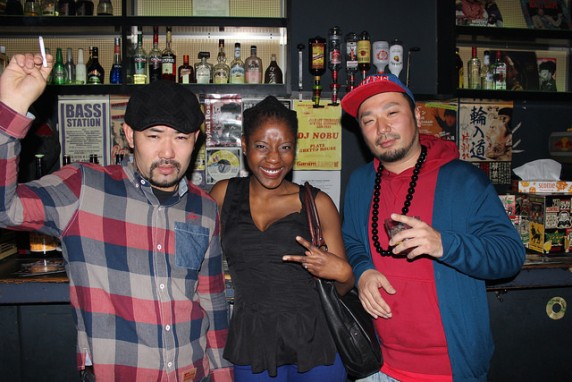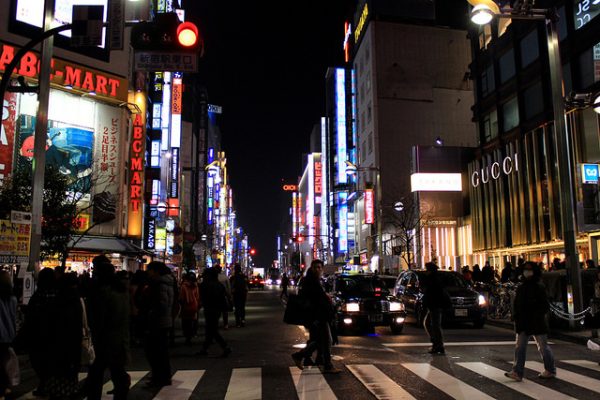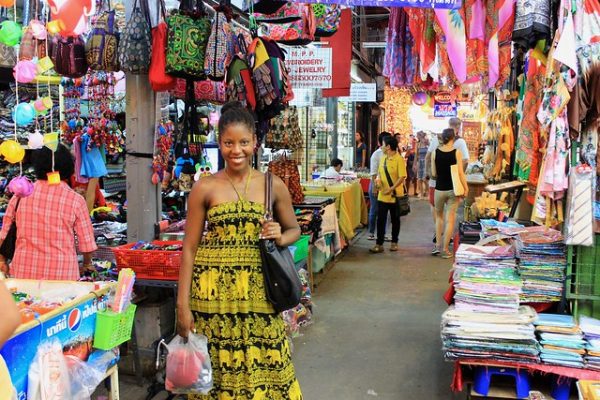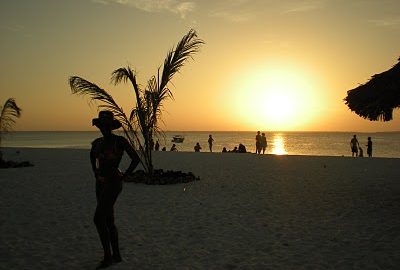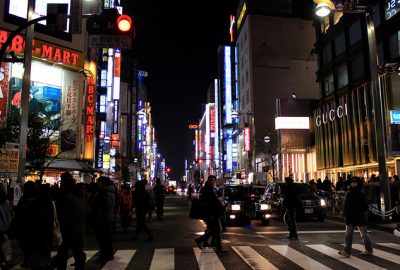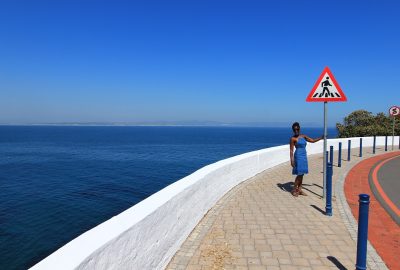The one in which I go to a reggae nightclub… in Tokyo
My friend and I get a surprising taste of Tokyo’s nightlife.
Not five minutes after we enter the handkerchief-sized nightclub, one of the Japanese dudes who has been surreptitiously looking us up and down since our arrival sidles up to us nervously. We are the only two black girls in a room full of Japanese, all men except for the petite DJ — and obviously curiosity has gotten the better of him. The words that escape from his lips are halting but easily discernible, even as old school reggae shakes the room. “Where you from?”
I smile broadly, conscious of the lie I’m about to tell. “Jamaica,” I say evenly. To be fair, it’s half true: my parents were born on the tropical island and didn’t immigrate to Canada until their late teens. I grew up eating jerk chicken and stewed peas, I can bust out an authentic Jamaican accent when convenient, and naturally swing my hips when the faintest strain of dancehall music hits the open air. I may not technically be from yaad, but it courses through my veins. I know the deal.
His eyes glow in recognition and he begins to almost pant with excitement. The words come out of his mouth faster now, the uneven gallop of a horse with a bum leg. “I go to Jamaica last year,” he puffs. “I stay there three months. In Half Way Tree.” Now it’s my turn to be impressed. I exchange a look with my friend, Miss C, also of Caribbean stock. I turn back to my interlocutor and cock my head. Half Way Tree, a neighbourhood in Kingston, is a stone’s throw from where my mom grew up. I am fully drawn in.
It’s late January and we’re in Garam, a reggae club in Tokyo, the backdrop of our four day Japanese adventure. We came to Tokyo seeking a full-bodied city experience, one rife with excitement, craziness, and possibility. Barely 24 hours into our sojourn, we are getting what we asked for, and eagerly anticipating what comes next. We spend our first afternoon trolling the corners of Shibuya, busy shopping area, and our home base of Shinjuku-ku, it too a large commercial centre (and de facto red light district). Our loosely planned itinerary incorporates both high culture and low, the traditional with the cutting edge and quirky: amongst other things, we are slated to attend a heady Japanese tea ceremony, as well as make a visit to the Akihibara district, epic epicentre of anime and manga fandom. For our first night, my friend suggests we do something completely random and check out a reggae club. She had heard from another friend that the dancehall scene was big here.
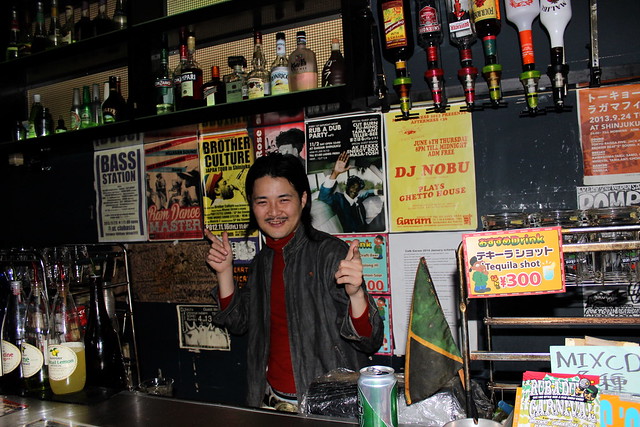
And so, we find ourselves in the smoky bowels of Garam, winding our waists with reckless abandon to the booming music — as we try to pretend we don’t notice the local contingent discretely surveying our every move. The club and its patrons represent cultural appropriation at its finest. There is the red, gold, and green Garam sign at the entrance, bottles of Wray and Nephew’s overproof rum adorning the bar, and revellers who move and dress like they are out of a Sean Paul video. The barman wears a large belt buckle embossed with a Jamaican flag, rude bwoy style. The atmosphere pulses with a carefully-crafted, studied authenticity.
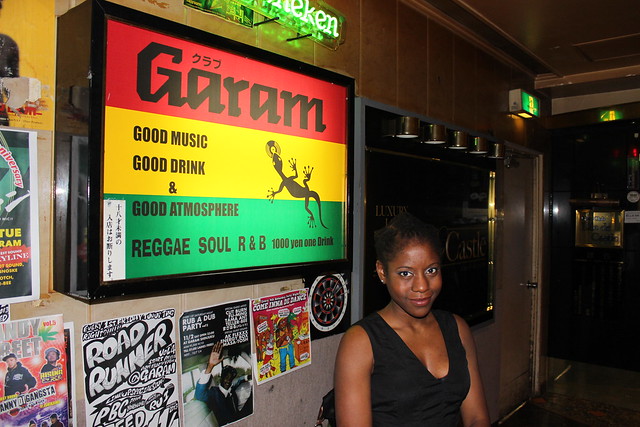
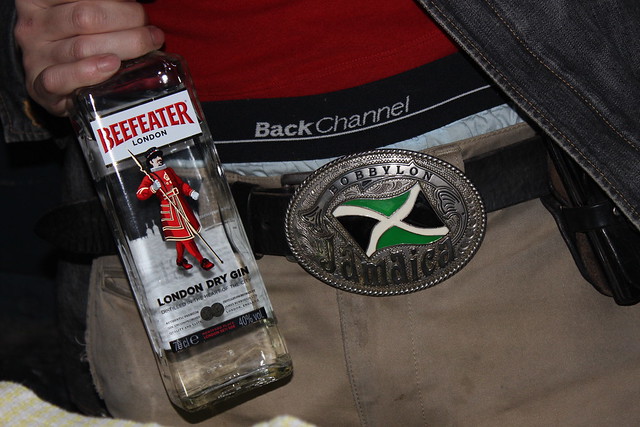
“What your name?” the man who approached us upon our arrival seems almost desperate to continue the thread of conversation. We tell him and ask for his. He answers and I’m not sure I’ve heard correctly until he shows us a flyer with his name printed on it. Our new friend, also a DJ it would appear, is named Vybz Yartel. We giggle; the irony of his name is not lost on us. For Vybz Kartel, spelled with a “k”, is one of Jamaica’s premier dancehall reggae artists . Yartel pulls his Kangol over his eyes and invites us to dance with him and his friend. “Vibe so nice,” he says through a grin as wide as a Cheshire Cat’s. Our group of four engages in a slow two-step to a Jimmy Cliff-esque ditty. Vibe so nice indeed.
A quick search online reveals that the reggae genre first was introduced to Japan in the early 1970s, and that in the years since the scene has exploded, with dancehall music in particular becoming a serious subculture and way of life. For many, the love affair runs deep: these disciples eat, sleep, and breathe reggae, with some, like our friend Vybz Yartel, even venturing as far as Jamaica for total immersion. The inculcation of cultural mores and trade secrets seems to be working: Japanese reggae dancer Junko Kudo controversially became the first non-Jamaican to win the International Dancehall Queen competition in 2002.
But my friend and I don’t think of this as we laugh and take pictures with our new acquaintances in the poky nightclub. The female DJ steps down from the booth and joins our circle, curious as to our provenance. Her successor, a tall man, steps up to the turntables and grabs the mic. Selecta-style, he talks over the record — what flows out of his mouth is a mix of Jamaican patois and Japanese. “Caribbean girls and Japan link up!” he cries, gesturing toward us. I am dumbfounded and pleasantly surprised. Did he really just do that? I smile at how wild this all is, realise how cool this exchange has been.
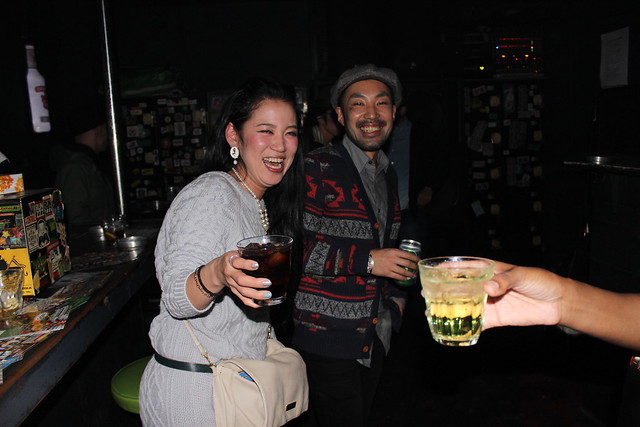
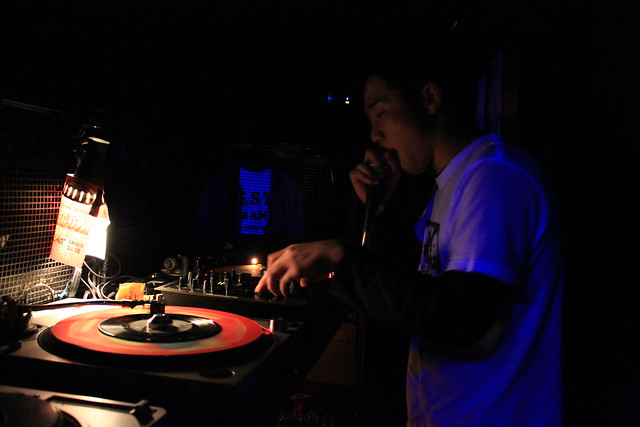
This is a cultural superhighway and I am ridiculously happy to be along for the ride.
Have you ever experienced a piece of “home” while abroad or witnessed another country’s spin on your home culture? How did it make you feel?

